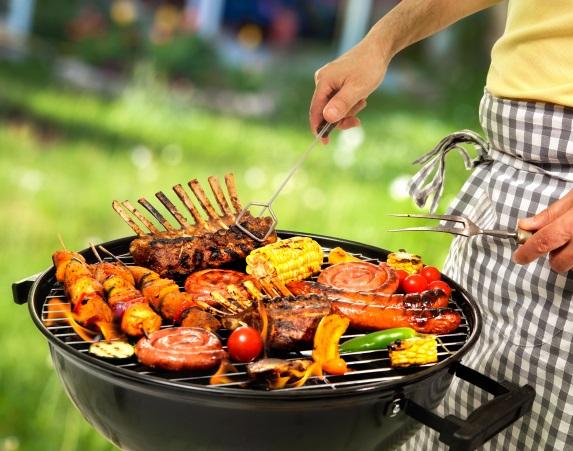The summer season is upon us. Break out your chef’s whites, call up some friends, and get ready for ketchup stains: it’s BBQ season. While memories made around the patio with family and friends last a lifetime, unfortunately, the environmental effects of BBQ’s last even longer.The U.S. Department of Energy estimates that 60 million Americans have barbecues on the Fourth of July alone, and release the same amount of energy in a single day that Flagstaff, Arizona does in a year. Here are a few helpful tips to maximize eco-friendliness while enjoying the summer BBQ season.
Purchase eco-friendly disposable tableware. There is a wide variety of recycled, compostable, and biodegradable options for plates, napkins, utensils, and cups. For a modest price, you can feel good about the used utensils you will inevitably be responsible for cleaning up (again). Consider your everyday stainless steel utensils for backyard events so there’s no waste after use. Another way to minimize garbage is to recycle, or use reusable tableware and linens, like cloth napkins. Be sure to label different disposal bins for recyclables and washables.
Choosing the right grill. Increase your environmental consciousness by educating yourself on your grill’s features. Gas grills are fueled by non-renewable fossil fuels. These fossil fuels release gases that increase surface temperatures within our atmosphere.Gas grills are not the most environmentally harmful, but it is advised to invest in high-quality, energy efficient, refillable models to help minimize long-term damaging effects. Charcoal grills, despite the enhanced flavor, are reported to release double the amount of carbon of that of a gas grill. Electric grills, however, provide the largest greenhouse gas footprint, unless powered by renewable energy, like solar power. An eco-friendly alternative is the GoSun Stove. This grill is strictly solar powered, and for every GoSun Stove sold, 20 new trees are planted by the company…
Cook efficiently. What you grill matters just as much as how you grill. Red meat, like beef and lamb burgers and steaks, are said to have the biggest negative environmental impact due to the higher costs and increased consumption of energy, pesticides, land usage, and nonrenewable resources needed to raise the livestock. Try shopping for locally grown, organic, produce for an healthy alternative to grill for your BBQ guests. When preparing all of your favorite summer foods, put as much on the grill as possible at once to maximize efficiency and cut down on wasted energy.
Be smart with beverages. Instead of buying cans and bottles of drinks, fill up pitchers to maximize consumption and reduce waste. Another way to reduce waste is to persuade guests to use the same cup. Hand out markers or stickers so guests can personalize their drinks. Not only will this save money, and reduce waste, this also gives your guests a way to show off their creativity.
Don’t forget to encourage guests to walk, ride bikes, or carpool to your summer BBQ! These small effort tips will ensure a fun AND environmentally friendly BBQ-filled summer.












Leave A Comment